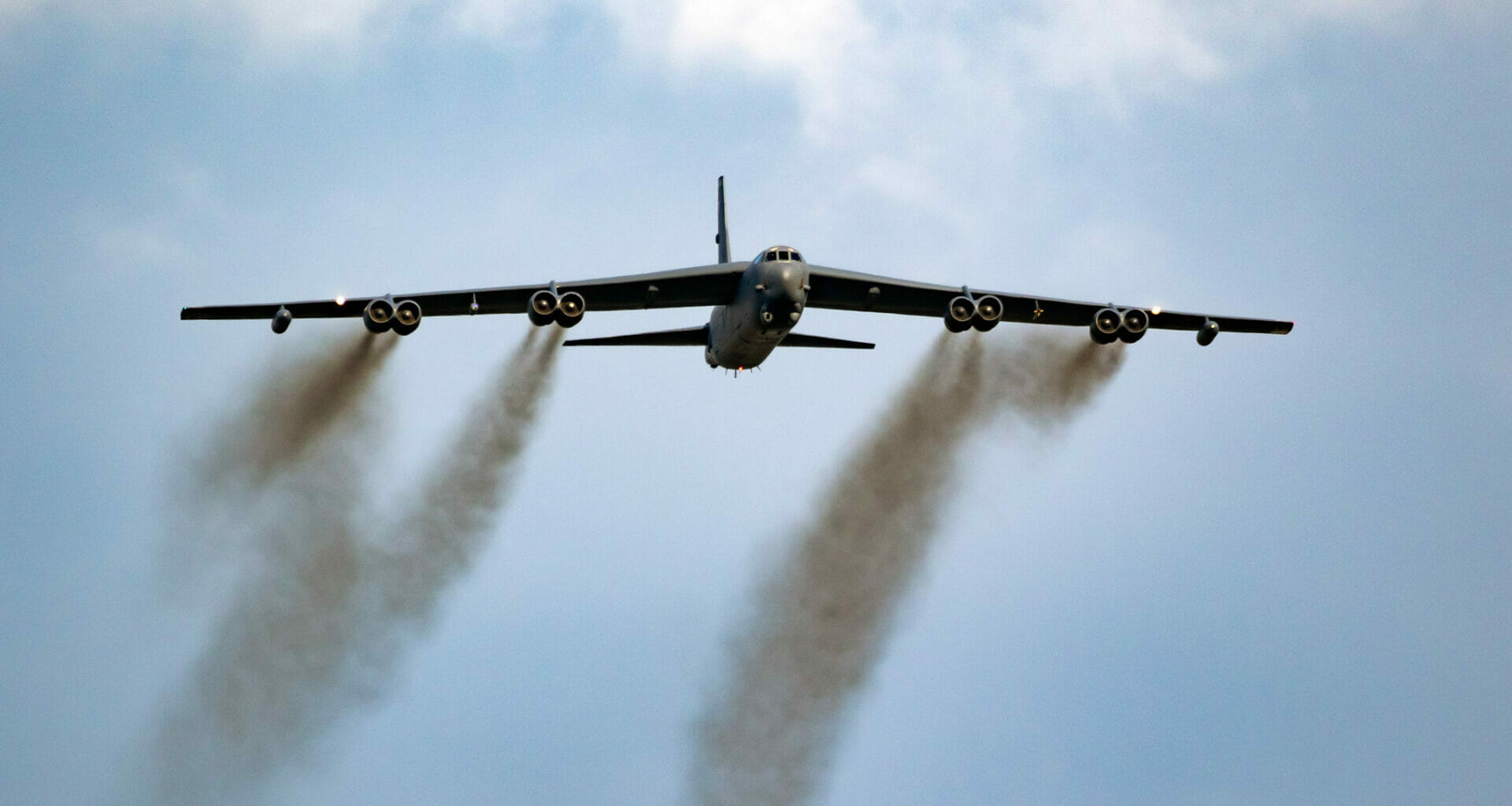The world’s richest countries — including the UK — are spending 30 times more on their armed forces than financial support for nations on the frontline of the climate crisis, according to new analysis.
The 24 wealthiest nations spent at least £6 trillion on their militaries between 2013 and 2020, while providing just over £200bn worth of climate finance for the countries most vulnerable to global heating, according to a new report by Transnational Institute (TNI).
The think tank also claimed that global military spending has been “supercharged” by Russia’s invasion of Ukraine. This has in turn caused a major increase in greenhouse gas emissions because armed forces remain wedded to fossil fuels.
The world’s response to the war has seen climate goals “quickly thrown out of the window”, with countries diverting money away from climate finance and towards military spending, the report claimed.
One author told The Ferret that military budgets are “deepening the climate crisis by increasing greenhouse gases and diverting money from climate action”. He warned that there would be “no safe country on a burning planet”.
The UK’s Ministry of Defence (MoD) has been asked to comment.
Combined, global militaries are estimated to produce 5.5 per cent of the world’s greenhouse gases. If they were a country, this would make them the fourth biggest climate polluter in the world, ahead of Russia, Germany and the UK.
The world’s richest nations are arming themselves to the teeth but not willing to defend us the far greater threat of the climate crisis.
Nick Buxton, Transnational Institute
Seven countries who have produced the most greenhouse gas emissions historically — and which are considered to be most responsible for the climate crisis — are also among the states with the biggest military budgets. They include the UK, Russia, China, and the United States, which spends by far the most on its armed forces.
Military carbon footprints are driven by the equipment and vehicles they use in exercises, patrols and to fight wars, which are dependent on fossil fuels.
The world’s armed forces combined consume more oil — a key contributor to the climate crisis — than major countries including Belgium and South Africa. This means that any increase in military spending is accompanied by an increase in the amount of climate emissions produced.
The European Commission expects that its members will increase their military budgets by at least £167bn in the coming years, while the US has approved a record £710bn military budget for 2023.
Meanwhile, in June, the UK announced that it would be using ‘underspends’ from its climate finance budget to help fund a £1bn military aid package for Ukraine in a move that angered climate activists. They argued that the Ukrainian and climate crises should not be made to “compete” for funding, and that the pot of money for overseas aid should instead be increased.
Climate finance is money used to help vulnerable countries adapt to and mitigate climate change, as well as to compensate for loss and damage they experience as a result of the increase in global temperatures.
A key part of the 2015 Paris Agreement was a commitment by the world’s richest countries to spend £85bn each year on climate finance. But research has shown that they have consistently fallen short of this target.
Discussions around climate finance have been central to the UN’s ongoing COP27 climate summit which is currently being held in Sharm-El-Sheik in Egypt.
According to TNI, the North African country is an example of a climate-vulnerable country which has been supported more with arms deals than climate finance. It received 5.7 per cent of global arms imports between 2017 and 2021.
The decision to choose Egypt as the host of the summit had already been criticised due to the country’s repression of climate and pro-democracy activists, as well as its “disappointing” green targets.
Nick Buxton, a co-author of the report and researcher at TNI, said that the group’s analysis had shown that while “the world’s richest nations are arming themselves to the teeth” they are still “unwilling to defend us against the far greater threat of the climate crisis”.
“Indeed by arming themselves, they are deepening the crisis by increasing greenhouse gas emissions and diverting money from climate action,” Buxton added. “We need to realise that there is no safe country on a burning planet.”
Read more of The Ferret’s coverage of the climate crisis here
Many global militaries have committed to tackling climate change, but have been criticised for being unready to face the scale of the crisis and of avoiding scrutiny over their emissions.
The MoD has claimed it is “determined” to help the UK Government address climate change and achieve its “legal requirement” to reach net zero climate emissions by 2050.
Its climate change strategy, published in 2021, includes plans to use more sustainable fuels and other emerging technologies to reduce its carbon footprint.
An MoD spokesperson said: “We are working across the department, the Armed Forces and wider government on becoming a more sustainable and climate resilient organisation. This includes transitioning to white fleet electric vehicles, investing in synthetic fuels, creating carbon neutral buildings and installing solar panels.
“We report on our emissions annually and are fully committed to contributing to the Government’s Net Zero targets alongside our suppliers.”
Featured image credit: iStock/VanderWolf-Images
This story was updated at 18:05 on 14/11/2022 to add a comment from the Ministry of Defence.














